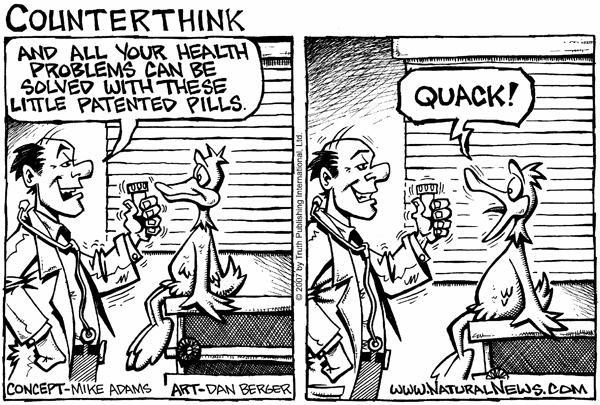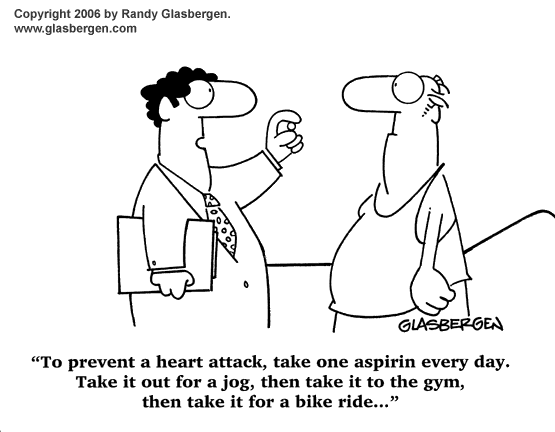Making Sense of Two Recent Testosterone Studies:
 I am always trying to make sense of the studies I come across. In the past couple of days, I came across two studies involving testosterone, the male hormone. One study showed that overweight men who suffered from hypogonadism (a medical term which describes a diminished functional activity of the gonads, the testes in males) who received testosterone lost weight; the other study showed that men who suffered from hypogonadism who lost weight increased their testosterone to a level where they no longer had hypogonadism (incidence of hypogonadism went from 20% to 11%, about a 50% improvement).
I am always trying to make sense of the studies I come across. In the past couple of days, I came across two studies involving testosterone, the male hormone. One study showed that overweight men who suffered from hypogonadism (a medical term which describes a diminished functional activity of the gonads, the testes in males) who received testosterone lost weight; the other study showed that men who suffered from hypogonadism who lost weight increased their testosterone to a level where they no longer had hypogonadism (incidence of hypogonadism went from 20% to 11%, about a 50% improvement).
After reading the two studies, I had to ponder for a while how they related to each other and then it came to me. Although I claim no absolute certainty in these conclusions, it seems that for certain overweight men, increasing testosterone, either endogenously (from within) or exogenously (from outside) helps them lose weight. Given the choice, it would seem better to naturally increase a hormone as opposed to getting it from some other derived source. The best way to do so if you are overweight is to change your diet to the a mostly plant-based diet, increase your exercise to moderately-intense 150 minutes per week, and get at least 7 hours of sleep a night.
Are Vitamin D Blood Tests Always Accurate?
Apparently not. A recent study showed that 40% of the time, blood-labs misdiagnose Vitamin D deficiency by reporting lower than actual levels. This may not be true for all labs or all types of equipment used. The equipment/tests that seemed to be the worst offenders were the Architect and Centaur-2 tests. The liquid chromatography/mass spectrometry (LC/MS) test is the gold standard and can generally be relied upon. So the next time you have a test, ask what equipment they are using and consider going to another lab with LC/MS equipment for greater peace of mind.
Is There A Link Between Vitamin B6 and Heart Disease?
A new study shows a link between low Vitamin B6 levels and increased risk for heart disease. The study does not show causality, which means it isn't clear if the low Vitamin6 causes the heart disease or the heart disease causes the low Vitamin B6. It is possible that the inflammation often seen in heart disease may decrease blood levels of the vitamin. Nevertheless, it is important to maintain adequate levels of all vitamins, including B6, so I include the reference table below for your edification.
 I am always trying to make sense of the studies I come across. In the past couple of days, I came across two studies involving testosterone, the male hormone. One study showed that overweight men who suffered from hypogonadism (a medical term which describes a diminished functional activity of the gonads, the testes in males) who received testosterone lost weight; the other study showed that men who suffered from hypogonadism who lost weight increased their testosterone to a level where they no longer had hypogonadism (incidence of hypogonadism went from 20% to 11%, about a 50% improvement).
I am always trying to make sense of the studies I come across. In the past couple of days, I came across two studies involving testosterone, the male hormone. One study showed that overweight men who suffered from hypogonadism (a medical term which describes a diminished functional activity of the gonads, the testes in males) who received testosterone lost weight; the other study showed that men who suffered from hypogonadism who lost weight increased their testosterone to a level where they no longer had hypogonadism (incidence of hypogonadism went from 20% to 11%, about a 50% improvement). After reading the two studies, I had to ponder for a while how they related to each other and then it came to me. Although I claim no absolute certainty in these conclusions, it seems that for certain overweight men, increasing testosterone, either endogenously (from within) or exogenously (from outside) helps them lose weight. Given the choice, it would seem better to naturally increase a hormone as opposed to getting it from some other derived source. The best way to do so if you are overweight is to change your diet to the a mostly plant-based diet, increase your exercise to moderately-intense 150 minutes per week, and get at least 7 hours of sleep a night.
Are Vitamin D Blood Tests Always Accurate?
Apparently not. A recent study showed that 40% of the time, blood-labs misdiagnose Vitamin D deficiency by reporting lower than actual levels. This may not be true for all labs or all types of equipment used. The equipment/tests that seemed to be the worst offenders were the Architect and Centaur-2 tests. The liquid chromatography/mass spectrometry (LC/MS) test is the gold standard and can generally be relied upon. So the next time you have a test, ask what equipment they are using and consider going to another lab with LC/MS equipment for greater peace of mind.
Is There A Link Between Vitamin B6 and Heart Disease?
A new study shows a link between low Vitamin B6 levels and increased risk for heart disease. The study does not show causality, which means it isn't clear if the low Vitamin6 causes the heart disease or the heart disease causes the low Vitamin B6. It is possible that the inflammation often seen in heart disease may decrease blood levels of the vitamin. Nevertheless, it is important to maintain adequate levels of all vitamins, including B6, so I include the reference table below for your edification.
This table is not meant to be a recommended
diet; rather, it is meant to give you a representative sample of sources of
Vitamin B6 in regularly available foods.
A healthy diet is one that contains fruits, vegetables, nuts, legumes
(beans), whole grains, and fat from fatty fish like Wild Salmon and Wild Cod.
It can also include some olive oil, limited red wine, and very occasional chicken
or meat. This is often referred to as the Mediterranean Diet and it still
seems to pack the most bang for the buck.
|
||
Food
|
Milligrams
(mg) per serving
|
Percent
DV*
|
Chickpeas, canned, 1 cup
|
1.1
|
55
|
Tuna, yellowfin, fresh, cooked, 3
ounces
|
0.9
|
45
|
Salmon, sockeye, cooked, 3 ounces
|
0.6
|
30
|
Chicken breast, roasted, 3 ounces
|
0.5
|
25
|
Breakfast cereals, fortified with
25% of the DV for vitamin B6
|
0.5
|
25
|
Potatoes, boiled, 1 cup
|
0.4
|
20
|
Turkey, meat only, roasted, 3
ounces
|
0.4
|
20
|
Banana, 1 medium
|
0.4
|
20
|
Marinara (spaghetti) sauce, ready
to serve, 1 cup
|
0.4
|
20
|
Ground beef, patty, 85% lean,
broiled, 3 ounces
|
||
Waffles, plain, ready to heat,
toasted, 1 waffle
|
0.3
|
15
|
Bulgur, cooked, 1 cup
|
0.2
|
10
|
Cottage cheese, 1% low-fat, 1 cup
|
0.2
|
10
|
Squash, winter, baked, ½ cup
|
0.2
|
10
|
Rice, white, long-grain, enriched,
cooked, 1 cup
|
0.1
|
5
|
Nuts, mixed, dry-roasted, 1 ounce
|
0.1
|
5
|
Raisins, seedless, ½ cup
|
0.1
|
5
|
Onions, chopped, ½ cup
|
0.1
|
5
|
Spinach, frozen, chopped, boiled,
½ cup
|
0.1
|
5
|
Tofu, raw, firm, prepared with
calcium sulfate, ½ cup
|
0.1
|
5
|
Watermelon, raw, 1 cup
|
0.1
|
5
|
*DV = Daily Value. DVs were
developed by the U.S. Food and Drug Administration (FDA) to help consumers
compare the nutrient contents of products within the context of a total diet.
The DV for vitamin B6 is 2 mg for adults and children age 4 and older. However,
the FDA does not require food labels to list vitamin B6 content unless a food
has been fortified with this nutrient. Foods providing 20% or more of the DV
are considered to be high sources of a nutrient.















